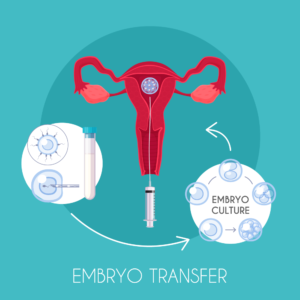When compared to IVF, it is a less invasive and cheap procedure.
this is a procedure in which husband’s semen is taken and the best quality of sperm is separated and put inside the women’s with a soft catheter at the time of egg release.This increases the chances of conception in women who have failed treatment with drugs.
• Once our fertility specialist has established the root cause of infertility through standard testing, they may recommend IUI in the following situations:
• Mild male infertility-if there are problems with sperm count or quality (sperm movement, shape, or size).
• Ejaculation dysfunction-If the male partner suffers from impotence – unable to have or sustain an erection and unable to have sexual intercourse due to a physical or medical condition.
If the female is experiencing irregular or absent ovulation
• Cervical stenosis &other cervical factor-
If the female has been diagnosed with a cervix-related disorder like stenosis, scarring ir thich cer ical mucus IUI is done as unlike during sexual intercourse, in IUI the sperm does not come in contact with the cervix as it is placed directly into the uterine cavity.
• unexplained infertility-IUI treatment may be the first option when the cause of infertility cannot be established.
• For the IUI treatment to take place, the fallopian tubes must be healthy and without blockage. Prior to treatment, your doctor will run diagnostic tests to assess the health of your tubes and uterus.
• You will be given fertility medication to stimulate ovulation and your menstrual cycle will be closely monitored to determine the exact time of ovulation.
• IUI treatment is generally performed within 6 to 24 hours of ovulation. On the day of the procedure, the male partner provides a specimen of sperm which is washed to remove seminal fluid and any dead sperm.
• Your doctor then places the washed sperm into the uterus using a soft catheter. The process of sperm insertion is fairly painless, takes about 5 minutes and does not require anaesthesia.
• You may experience minor discomfort as the vagina is held open using a speculum, however, it subsides quickly and you can resume your routine activities soon after.
Following the IUI treatment, your doctor may prescribe progesterone suppositories (vaginal inserts)
support implantation of the embryo, which generally occurs 6 to 12 days after IUI treatment.
Success Rate of IUI –
The success rate of IUI for one cycle is 10-15 percent which increases to 30-40 percent after 3 cycles if IUI.
IUI success depends on several factors. Your age, cause of infertility, medications used and doctor’s expertise can influence the success of the IUI procedure. If you don’t conceive through IUI, your fertility doctor may recommend In vitro fertilization (IVF) which has higher success rate.

• Fewer medications visit needed
• Less expensive
• Less Invasive
• Used in only selected case of Infertility
• Low success rate
• Multiple pregnancies
• There might be chances of infection, but an experienced doctor takes all precautionary measures
using sterile instruments to avoid any infection.
• If you are taking fertility medication during IUI, there are chances of multiple pregnancies. Your
fertility doctor will adjust the medication and keep monitoring you to avoid any complications.
• You may experience Ovarian hyperstimulation syndrome when there is an over-response to fertility
medication.
• Consult your doctor if you experience these symptoms-Nausea and vomiting,Shortness of
breath,Severe abdominal pain or pain in the pelvic area, Bloating of the abdomen etc
Regardless of your age, consult with Dr. Neha if you have not fallen pregnant within six months if you
have any of the following:
●● irregular or absent menstrual periods
●● history of pelvic infection
●● two or more miscarriages
●● history of using an IUD for birth control
●● prostate infections in the male partner
●● sterilisation reversal in either partner
●● difficulties with sexual intercourse
●● chronic pelvic pain
●● breast discharge
●● history of sexually transmitted disease
For more information or to schedule an appointment, Contact Us Now!

